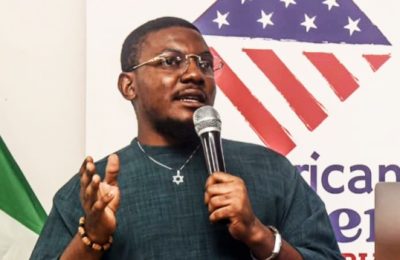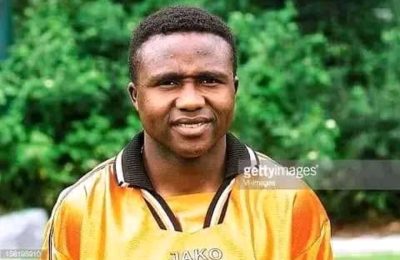

WITH 68 days to the 2023 general election, the challenge of insecurity remains a focal point in public discourse within and outside the shores of the country. It is of great concern to the international community because of the strategic position Nigeria occupies in the West African sub-region and the continent of Africa. At the local level, various stakeholders are equally worried by the multidimensional security challenge that has consequences for the conduct of the seventh general election after Nigeria returned to civil rule.
In May this year, the chairman of the Independent National Electoral Commission (INEC), Professor Mahmood Yakubu, had lamented the danger posed by the security issues as the journey to the general election progressed. He advocated more concerted and collaborative efforts among all vested interests towards creating a congenial atmosphere for the conduct of the polls.
“The general security situation in the country and its impact on the electoral process is a source of concern to the commission. However, we are confident that with nine months to the 2023 general election, there is enough time to respond to the security challenges and secure the nation for elections to take place nationwide,” Yakubu had said.

In August, a former Chief of Army Staff (COAS). Lt-Gen. AbdulrahmanDambazau (retd), expressed apprehension over the security situation, which he categorically said posed a threat to the 2023 elections. He had rhetorically asked: “Would insecurity affect the 2023 elections? Surely it would, because some of the community would still be displaced and the terrorists would likely continue attacks on soft targets, INEC officials and ad hoc staff would be highly apprehensive despite the assurance by the government to protect them. Access to polling units in border communities may pose some difficulties. This is a more reason adequate security must be provided. As we also prepare for the election, we should also think of the possibility of an attack on the election process by violent groups.”
But incumbent Chief of Defence Staff (CDS), Lt-Gen Lucky Irabor, had tried to calm frayed nerves over the challenges posed by insecurity as the general election beckons. His assurance of a conducive climate for the election is informed partly by what he described as the covenant the Nigerian Armed Forces have with the existing democratic process and their resoluteness to guarantee the elections hold. “We, as members of the armed forces, have a covenant with the democratic process and that covenant presupposes that we will do everything to create the conditions for a free, safe and secure conduct of the 2023 elections,” he had told his constituency nay Nigerians as a whole. “I want to assure you that we will do everything possible to ensure that every part of this country has the necessary safety guarantees that will enable all eligible voters to exercise their franchise.”
Beyond the assurance from the top echelon of the security architecture of an appropriate environment is the frequency of violent attacks by certain elements on the offices and facilities of the INEC in parts of the country, the resurgence of the attacks underlines the concern being expressed by some international figures and institutions on the conduct of the elections in the country. This is aside from the worries that the INEC chairman, Professor Yakubu, has raised on the challenges arising from insecurity, especially the seeming serial attacks on INEC offices. He reasoned that the task of “ensuring the safety and security of voters, election personnel, materials, candidates, party agents, observers, the media and transporters were not just enormous, but has also “become more challenging in the context of the current security situation in the country.”

Nigerians are hoping to, as from February 25, 2023, elect new president, vice-president and 469 members of the two chambers of the National Assembly: Senate and House of Representatives, as well as 28 state governors and members of the state Houses of Assembly. Regarded as the largest democracy in Africa, the country is under a global radar especially because of the impact of the success or otherwise of the elections in Nigeria beyond its shores. The sustained threats posed by many non-state armed groups have complicated the multiple challenges that had hitherto characterised general elections in the country. These include insurgent groups, terrorist organizations and bandits wielding lethal weapons. With more than 10 million additional voting population, INEC has the Herculean task of delivering credible and wide elections in the face of the seeming daunting security challenges. The rise in the voting population has come with other arrangements by the commission not to disenfranchise the eligible citizens on the voter register. The polling units have risen by 41 per cent with the creating of 56,800 new polling units to bring the total to 176,846 polling units for the year, with implications for hiring of ad hoc staff to man the polling units and the deployment of law enforcement agents to provide security.

The ugly phenomenon of political intolerance of the old has undergone different shades. In the past, demagogues masqueraded their gangs in the toga of “Area Boys,” but the transformation has seen the non-state actors perpetuating political thuggery linked to body of artisans inclined to some desperate politicians. And their activities remain a huge challenge to the concept of peace accord designed to create and foster a violence free space before, during and after elections. According to the EU Election Observation Mission for the 2019 election, there was “organised intimidation” of voters, violence and other misconduct in Kano by “groups of youths with clubs and machetes” while “people with party agent tags harassed voters.”
Cases of crimes and criminalities are also a major worry for a former INEC boss, Professor AttahiruJega because of the general implications for the outcome. He said the issue of credibility was fundamental in every election that aims to measure up to global standard. “Unless elections are conducted in an environment that is peaceful and secure, the integrity and even the legitimacy of the outcome of that election will be questioned. Security challenges undermine electoral integrity. It constrains or disrupts preparations and conduct of elections and it leads to partial or totally illegitimate electoral outcomes. As we look forward to the 2023 general election, there is increasing apprehension that the pervasive insecurity situation in the country may present a formidable obstacle if not an obstruction to that election. If not appropriately and effectively mitigated, security challenges would pose the most serious danger to the integrity of the election process if it eventually allows the election to be conducted,” he noted.
By the last count, criminal elements have attacked more than 40 INEC offices in some states, with the most recent being in Imo State. The development, which led to the police to hierarchy reading the Riot Act, has further manifested in security cordon on INEC facilities across the country, with all arms of the security agencies involved.
However, some observers raised some posers over the proactive measures. One of the teasers is the level of deployment of modern security technology around INEC facilities across the country. Two is the level of effectiveness of hitherto security arrangements based on the directives and assurances emanating from higher authorities on security ahead of the elections. For instance, the National Security Adviser (NSA), Major General BabaganaMonguno (retd), had reinforced the message by President MuhammaduBuhari on the determination of his administration to leave a legacy of a credible poll in 2023. Monguno said: “The president is committed to delivering an election that is completely transparent and which will command the general acceptance of the Nigerian population. This election, as far as the president is concerned, will be devoid of any wuru-wuru in Nigerian parlance. Now in furtherance to this, the president has charged the military, police, DSS and all security agencies to synergise effectively, review the operational strategies and optimally deploy all their operational assets towards addressing current and revolving general security threats ahead of the forthcoming general elections. I am confident that the presidential directives will be achieved and 2023 general elections will be conducted peacefully in a stable security environment.”
Moving forward
In its observation on the forthcoming election in Nigeria, the Tony Blair Institute for Global Change listed some likely landmines. It warned against the ripple effect of a trouble election in Nigeria on other African countries. Therefore, the non-governmental organisation recommended, among others, that the “Nigerian security, law enforcement and intelligence agencies should use the few months left before February election to push back violent groups and secure vulnerable communities, as well as liberate those already seized.”
With weeks to the elections, how much ground can be covered by the various authorities in that regard? Or will there be a repeat of the 2019 scenario when a similar election was shifted by two weeks due to challenges that threatened the integrity of the elections?
ALSO READ FROM NIGERIAN TRIBUNE








